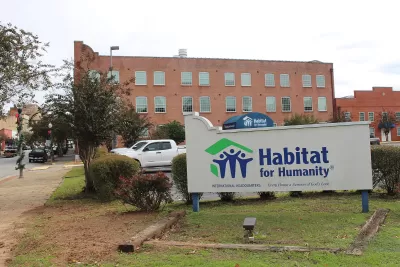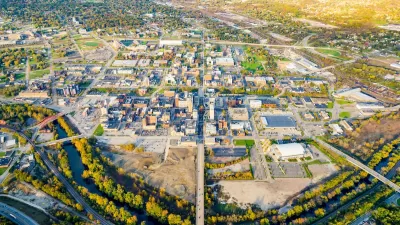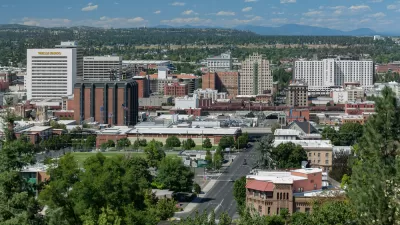Habitat for Humanity is working with 3D-printers to reduce the costs of construction and provide more housing for families in need.

Habitat for Humanity is enlisting the help of 3D-printing companies to fight the growing housing crisis and build more homes faster and more affordably. As Claretta Bellamy reports, high costs and material shortages have led developers, including Habitat for Humanity, to look for innovative solutions for producing low-cost housing to meet growing demand.
According to the article, a 3D-printed home built from concrete can save up to 15 percent on construction costs while still providing a "safe, affordable place to live" and the opportunity to own a home for low-income families.
"Using 3D printing to build homes provides numerous benefits, including a decrease in construction time due to the machine’s efficiency," Bellamy writes. According to Kirk Andersen of 3D-printing company SQ4D, the minimal need for on-site supervision also prevents injuries and saves builders money. And while traditional homebuilding takes six to 12 months, a 3D-printed home takes under six months to erect.
Housing advocates like Jeff Olivet, co-founder of Racial Equity Partners, say that in addition to programs like Habitat for Humanity, fighting decades of exclusionary housing policies and fixing the deeply entrenched affordability crisis will require "a national collective effort that also involves fixing housing policies and expanding services."
FULL STORY: How 3D printing can be the solution to the nation’s affordable housing crisis

Planetizen Federal Action Tracker
A weekly monitor of how Trump’s orders and actions are impacting planners and planning in America.

Maui's Vacation Rental Debate Turns Ugly
Verbal attacks, misinformation campaigns and fistfights plague a high-stakes debate to convert thousands of vacation rentals into long-term housing.

San Francisco Suspends Traffic Calming Amidst Record Deaths
Citing “a challenging fiscal landscape,” the city will cease the program on the heels of 42 traffic deaths, including 24 pedestrians.

Amtrak Rolls Out New Orleans to Alabama “Mardi Gras” Train
The new service will operate morning and evening departures between Mobile and New Orleans.

The Subversive Car-Free Guide to Trump's Great American Road Trip
Car-free ways to access Chicagoland’s best tourist attractions.

San Antonio and Austin are Fusing Into one Massive Megaregion
The region spanning the two central Texas cities is growing fast, posing challenges for local infrastructure and water supplies.
Urban Design for Planners 1: Software Tools
This six-course series explores essential urban design concepts using open source software and equips planners with the tools they need to participate fully in the urban design process.
Planning for Universal Design
Learn the tools for implementing Universal Design in planning regulations.
Heyer Gruel & Associates PA
JM Goldson LLC
Custer County Colorado
City of Camden Redevelopment Agency
City of Astoria
Transportation Research & Education Center (TREC) at Portland State University
Jefferson Parish Government
Camden Redevelopment Agency
City of Claremont




























